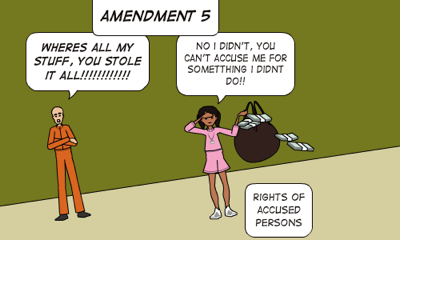

Most obviously, the core meaning of “law of the land” provisions, dating back to the Magna Carta, is to secure the principle of legality by ensuring that executive and judicial deprivations are grounded in valid legal authority. There are certain respects in which “due process of law,” understood as equivalent to “the law of the land,” uncontroversially regulates the substance of governmental action.

Although the phrase “due process of law” first appeared in the fourteenth century with a very narrow and technical meaning involving the service of appropriate writs, the American Founding generation likely identified the Fifth Amendment’s Due Process Clause with the clauses, prevalent in state constitutions in 1791, that required governmental deprivations of life, liberty, or property to conform to “the law of the land,” as well as appropriate notice and ability to defend oneself in court. To understand the Fourteenth Amendment’s Due Process Clause, one must start with the Fifth Amendment’s Due Process Clause, from which the language of the Fourteenth Amendment’s provision was drawn nearly verbatim. This essay will address substantive due process and the use of the Fourteenth Amendment’s Due Process Clause as a vehicle for incorporating selected provisions of the Bill of Rights against the states. The doctrine of procedural due process under both amendments, as well as the definition of “life, liberty, or property” as the range of interests protected by the respective Due Process Clauses, is addressed in more detail in the essay on Due Process in the Fifth Amendment. Modern law interprets the Fifth and Fourteenth Amendments to impose the same substantive due process and procedural due process requirements on the federal and state governments. Williams (1986) (Stevens, J., concurring). Both the Fifth Amendment and the Fourteenth Amendment to the Constitution prohibit governmental deprivations of “life, liberty, or property, without due process of law.” The Due Process Clause of the Fourteenth Amendment serves three distinct functions in modern constitutional doctrine, in the words of the Supreme Court in 1986: “First, it incorporates specific protections defined in the Bill of Rights . . . Second, it contains a substantive component, sometimes referred to as ‘substantive due process’ . . . Third, it is a guarantee of fair procedure, sometimes referred to as ‘procedural due process’ . . .” Daniels v.


 0 kommentar(er)
0 kommentar(er)
